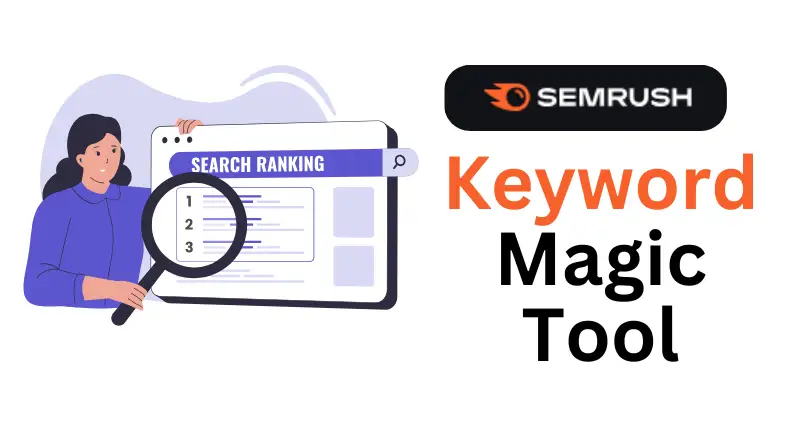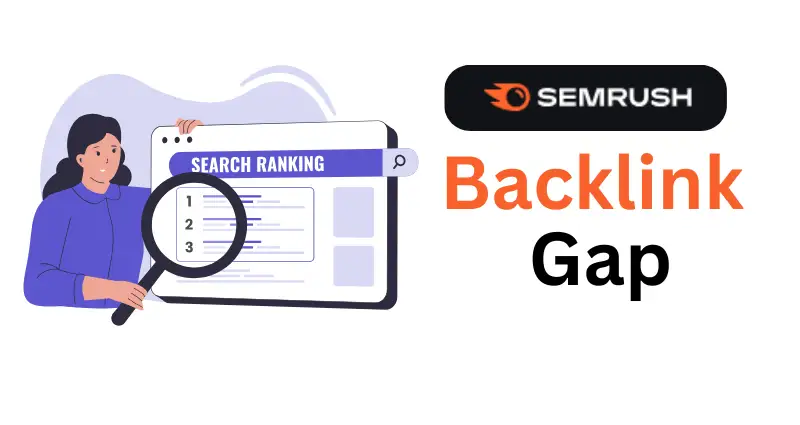If you’re looking to improve your website’s organic traffic and SEO strategy, SEMrush Organic Research is one of the most powerful tools you can use.
Whether you’re a beginner or an experienced SEO professional, this tool offers valuable data on how your website is performing in organic search and how you stack up against your competitors.
In this post, we’ll walk you through how to use SEMrush Organic Research in a practical way to get actionable insights that you can apply to your SEO strategy right now.

What is SEMrush Organic Research?
SEMrush Organic Research is a feature within SEMrush that provides in-depth data about a website’s organic search performance.
It gives you insights into which keywords a site is ranking for, how much traffic those keywords bring, and which pages are driving the most organic traffic.
In simple terms, it helps you understand:
- How your website is performing in search engines
- What keywords are driving traffic to your website
- How your competitors are doing in the same areas
This data is crucial for tweaking your SEO strategy to get better results.
How to Use SEMrush Organic Research: A Step-by-Step Guide
Now, let’s dive into how you can use SEMrush Organic Research to improve your SEO. Follow these practical steps to get started:
1. Analyze Your Own Website’s Organic Performance
To get started with Organic Research, you first need to know how your website is doing.
Here’s how to use SEMrush to gather the data:
- Step 1: Log into your SEMrush account and go to the Organic Research tool under the SEO section.
- Step 2: Enter your domain (your website URL) into the search bar and hit Search.
What you’ll see:
- Organic Search Traffic: A snapshot of how much organic traffic your website gets.
- Top Organic Keywords: A list of keywords that are driving traffic to your website. This helps you see what terms people are using to find you on search engines.
- Position Distribution: How many of your keywords are in the top positions (1-3), middle positions (4-10), and lower positions (11+). The higher your keywords rank, the more organic traffic you’ll get.
Why this is useful: Knowing where you stand with your current keywords helps you assess if there’s potential to improve rankings or if you need to focus on a different set of keywords.
2. Identify Keyword Opportunities
Once you’ve understood your current keyword performance, the next step is to find keyword opportunities that can help you rank higher and attract more organic traffic.
Here’s how to find them:
- Step 1: Scroll down to the Top Organic Keywords section.
- Step 2: Look for keywords that are ranking in positions 4-10 (or even further down). These are the keywords that have potential to move up with a little optimization.
Pro Tip: Look for long-tail keywords (keywords that are more specific and usually have lower competition) in this list. Ranking for these can drive highly targeted traffic to your site.
Why this is useful: Finding keywords that are already close to ranking in the top positions means less work to rank higher, and you can start seeing results more quickly.
3. See Which Pages Are Performing Best
Another key feature of Organic Research is identifying which pages on your website are bringing in the most organic traffic.
This helps you understand what content resonates with your audience and where to focus your efforts.
- Step 1: Under the Pages tab, you’ll find a list of your top pages by organic traffic.
- Step 2: Check the pages that bring the most traffic. You can also see which keywords are associated with those pages.
Why this is useful: Knowing which pages drive the most traffic allows you to:
- Replicate the success of these pages with new content.
- Optimize other pages that might not be performing as well.
4. Compare Your Performance with Competitors
SEO is all about staying ahead of the competition, and SEMrush Organic Research makes it easy to see how your competitors are doing.
- Step 1: In the search bar, enter the domain of one of your competitors.
- Step 2: Now, you can see how they perform in organic search, what keywords they are ranking for, and which pages are getting traffic.
Why this is useful: Analyzing competitors helps you find gaps in your strategy.
For example, if a competitor ranks for a keyword you haven’t targeted yet, you can optimize your content to compete for that keyword.
Similarly, you can identify opportunities for backlinks or partnerships based on the content that’s bringing in traffic for your competitors.
5. Track Keyword Rankings Over Time
To track how your SEO efforts are paying off, you need to monitor your keyword rankings over time. SEMrush makes this easy with the Position Tracking tool, which lets you see how your keywords are progressing.
- Step 1: Set up a Position Tracking project in SEMrush.
- Step 2: Add the keywords you’re targeting and track how they perform each week or month.
Why this is useful: Tracking your rankings helps you see the direct impact of your SEO efforts. If a keyword moves up in rankings, you know your strategy is working. If it drops, you can adjust your approach and improve.
Why SEMrush Organic Research Matters for SEO
Understanding your organic performance is essential for SEO. Here’s why SEMrush Organic Research is important:
- Pinpoint Growth Areas: It helps you identify keywords that need improvement and find opportunities for new keywords to target.
- Competitor Insights: Knowing what your competitors are doing right (or wrong) gives you an edge in refining your strategy.
- Track SEO Progress: Continuous tracking of your keyword rankings and traffic growth helps you measure the effectiveness of your efforts.
Conclusion: Start Using SEMrush Organic Research Today
SEMrush Organic Research is a practical and straightforward tool that provides clear insights into your website’s performance and SEO potential.
By understanding your current keyword rankings, discovering new opportunities, and monitoring your competition, you can create a more focused and successful SEO strategy.
Start using Organic Research today to get a clearer picture of your website’s organic performance and take actionable steps towards boosting your search rankings.







